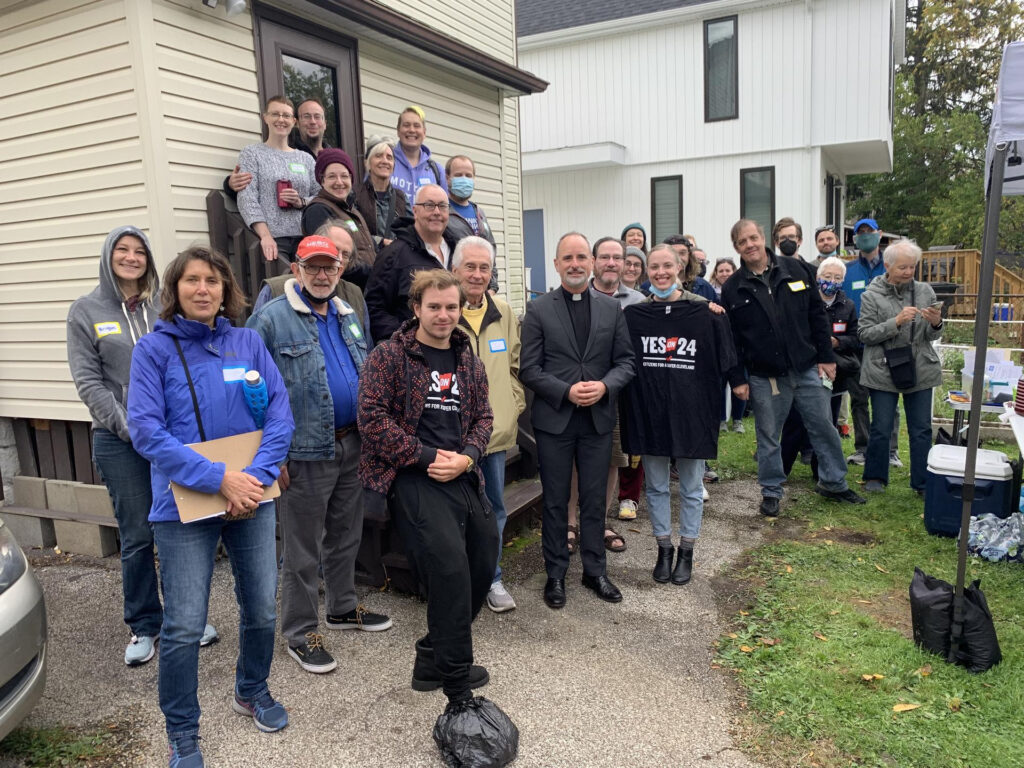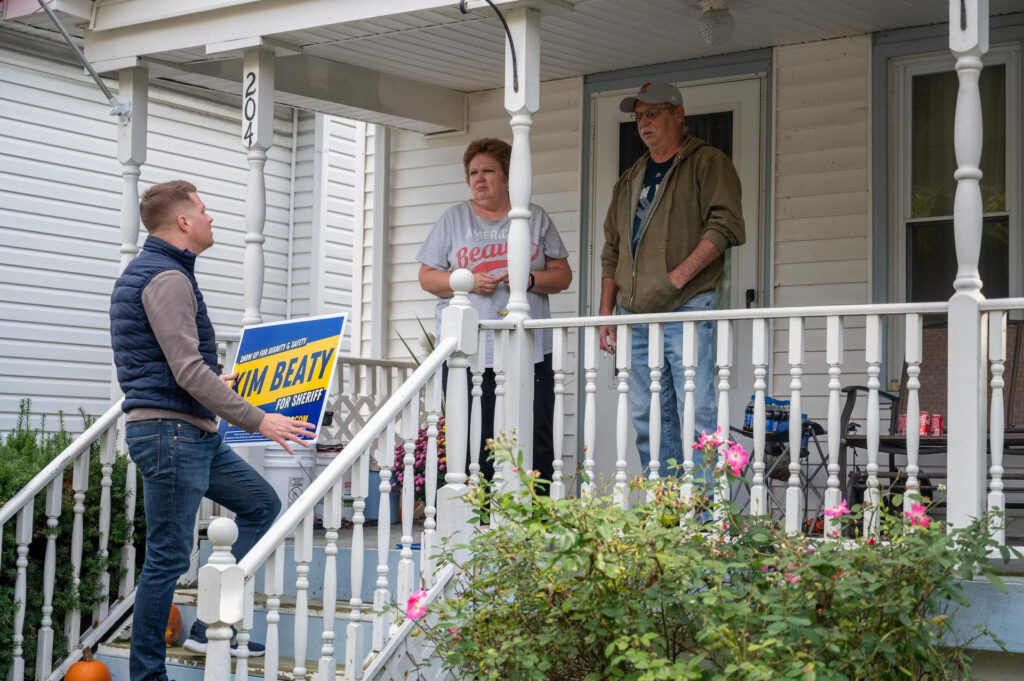If we don’t talk about race, we lose to the right
by Erin Heaney, SURJ National Director | Photo by Sierra King, Survival Media Agency
Today I’m more convinced than ever that our collective future in part depends on our success in organizing white people away from the solidarity of whiteness and into multiracial solidarity.
As I’ve watched the national election results come in, it’s clear that the Right’s strategic use of racism works when the Democrats then refuse to talk about race. What we’re seeing in New Jersey,Virginia, and elsewhere demonstrates that strategic racism is a powerful and effective strategy for mobilizing white voters and electing far-Right and corporate candidates.
If we don’t talk to white voters about race, the Right still does – with devastating consequences.
I’m finding hope today in returns from SURJ’s work across the country that shows that if we do talk to white voters about race, it doesn’t have to be this way.


In Cleveland, we hit the doors in white neighborhoods to talk to them directly about policing – and they came with us! Last night, Issue 24, the strongest community-led initiative for oversight and accountability for policing in the country, won by wide margins.
SURJ knocked on 5,400 doors in one of Cleveland’s whitest wards to talk about policing and community safety with poor and working-class voters. We engaged these voters around their mutual interest in criminal legal reform, which happened naturally in a ward where so many white people experience the criminalization that comes from living in poverty. We had 1,300 conversations in Ward 13- and that’s almost exactly the number of voters who voted “yes” on Issue 24!
We talked to many white residents who had seen first hand the harm our policing system causes: people who feared someone might call the police on their loved one struggling with addiction, a woman who saw her nephew start to use racist and violent language after joining the police, a nurse who had cared for ER patients who had been assaulted by police, a man who had to stand in between his brother and police officers with guns drawn.
This coalition- led by family members who have lost loved ones to police violence in Cleveland- reminds us that when we do our work to bring white people into multiracial coalitions led by people of color- we can win!


In my hometown of Buffalo, we are still waiting for absentee ballots to be counted to determine Erie County’s next sheriff. But regardless of the outcome, we’re seeing that when we go talk to white voters directly about race, they come with us.
We targeted white suburban voters who we knew were also being targeted by the racist law and order messaging of the Right. We went to the suburbs of Buffalo knowing our conversational approach would draw out people’s lived experiences, underlying feelings about jails, and create a container to talk about the issues.
Over 80% of the people we talked to supported the progressive Democratic candidate. And we found hundreds of white people also struggling under the system. In every single conversation in Buffalo, we found someone who had been locked up in the Buffalo Holding Center, knew someone who had, and still more who worried about their loved ones struggling with mental health or substance use and what could happen if they were to end up there. We had over 7,800 conversations that led to over 2,300 vote commits.
The election results – both the good and the bad – underscore the core assumptions at the foundation of SURJ’s work. White racial solidarity and strategic racism are a powerful tool used by those at the top to maintain a violent and exploitative economic system that benefits the very few at the expense of the many. Organizing white people away from the solidarity of whiteness and instead into multiracial movements for justice is a critically important contribution to our movement.
I know it’s more important than ever that those of us who are white are fighting just as hard for the hearts, minds and votes of our people. I am determined to double down on the work of organizing my own.
If we don’t talk about race, we lose to the right Read More »


